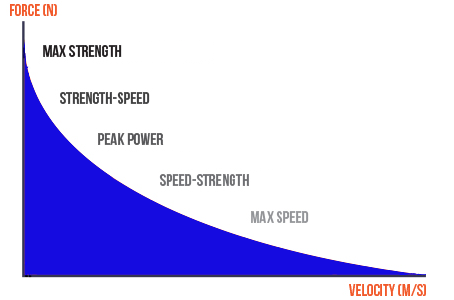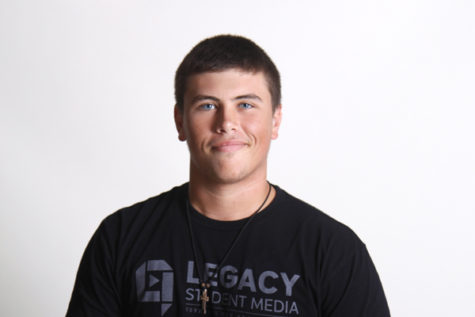Shouts of encouragement ring throughout the natatorium, but the cool, chlorine-filled water rushing by her ears retains senior Haley Yelle’s focus. Her arms and legs pump, propelling her through lap after merciless lap, until, finally, she reaches the end of her event, touches the wall and comes out of the water for a huge gasp of air.
“I love the pain of swimming,” Yelle said. “I just enjoy the feeling of working hard and reaching my goals.”
Many athletes know the feeling of pushing for a goal and striving above and beyond what they thought capable to achieve something greater than themselves. However, many of the most effective techniques to achieve a goal like training, working out or nutrition involve a discipline that rarely receives credit on game day: science.
Sports — and training to become better at them — involves many different sciences. Areas of study, such as Kinesiology, Biomechanics, the science of energy systems, motor learning and control and physics are just a few of the disciplines that help athletes shave time off their lap, score a goal, shoot a three or field a line drive. Strength and conditioning coach Hamilton Greer helps to implement these sciences into Legacy’s sports programs.
“[I use] a very holistic approach to development of athletes,” Coach Greer said. “In other words, I integrate a lot of different sciences in the most practical way I can.”
Yelle, an endurance swimmer, must swim at a consistently fast pace for a long period of time. She pays attention to things like calorie intake, nutritional protein and the lean muscles she needs to build in order to swim faster and longer. Once she reaches the collegiate level, swimmers pay close attention to body composition and fat to muscle ratio.
“[Swimmers] look at the ratios in their body to base where you need to be to get you your peak performance,” Yelle said. “I need lean muscle, whereas sprinters tend to have bulky muscle.”
Not everyone who competes considers the science behind their sport. Many athletes, like sophomore Mason Callaway, worry less about the research and more about the joy of exertion and competition. Callaway runs cross country in and out of school and plays tennis at Legacy.
“My family, we run, that’s what we do,” Callaway said. “We go to 5k’s and road races and just run. I don’t really do research.”
Coach Greer implements different types of fitness for different sports, targeting the specific demands of each. Football players must make quick cuts on the field to change direction. Baseball and softball players must be able to sprint correctly in order to maximize their speed on the diamond. Basketball players must work on plyometrics in order to better leap to the basket. Given all of these different sports and training techniques, Coach Greer recognizes a clear difference between athletes and fit people.
“When it comes to training, I think that people who don’t play sports work out, and people that do play sports, at least with a strength and conditioning coach, they train,” Coach Greer said. “Training and working out are two completely different things. Working out is doing what you want, something that everybody likes to do. Training would be doing things that nobody really likes to do but will help you get better.”
For Yelle, who recently signed to swim at Texas A&M University, swimming differs from other sports that happen on land. The never-ending push of swimming keeps her going, day after day, week after week, year after year.
“Swimmers, during practice, we get maybe 30 seconds of rest at a time, and that’s actually a lot of rest,” Yelle said. “It sucks, but it feels so good at the same time.”




